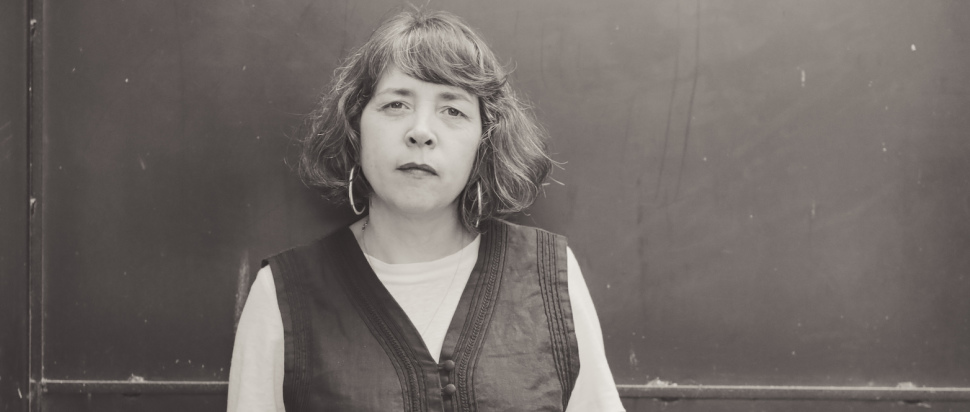Below the Soil: Lisa O'Neill interview
Ahead of her appearance at the Edinburgh International Festival, Lisa O'Neill talks about the importance of documenting sociopolitical issues and nature in her music
The writer Ian Maleney said upon discovering the poetry of Seamus Heaney that it was the first time he felt the place he was from could be "a place of poetry”. Such is the same feeling one gets upon listening to Lisa O’Neill for the first time – that there is a certain magic to the place. The Cavan-born songwriter infuses every song with the Irish tradition of storytelling, seamlessly weaving together a blend of poetry, music and the art of the scéal.
Off the back of her acclaimed fifth album, All of This Is Chance; a recording of Bob Dylan’s All The Tired Horses for BBC’s Peaky Blinders (one Cillian Murphy counts himself among her many fans); and a beautiful rendition of Fairytale of New York with Glen Hansard at Shane MacGowan’s funeral, O'Neill lands in Edinburgh this August to play the International Festival, in what will surely be a magical evening and the perfect escape from the madness of festival season.
It’s no secret that traditional music has seen a renaissance in the last few years – from Scotland’s many traditional music festivals (covered in this very magazine), to acts like Lankum, Ye Vagabonds and Niteworks all gaining unprecedented popularity. What is driving this resurgence? Perhaps a hankering for a simpler, softer existence? “I think it never went away," says O'Neill. "I think it's always been part of our education. We tapped into the older songs, you know, but it seems to me, it's just popular now. It seems to be reaching the bigger stage, and the media are on board with it… but it never died.”
Take a wander over to your local’s trad sesh of an evening and you’ll see this to be true – it’s an education, passed down through generations, a way of continuing the great oral tradition. As O'Neill says, “songwriting is about storytelling,” and what a story she tells. Her music is the kind that stops you in your tracks, makes you slow down, appreciate that which is around you.
Nature is a pervasive theme, the wind, trees, flowers and birds becoming recurring characters throughout her work. They are songs that feel at once new and fresh and also as though they have been with us for centuries, imbuing the natural world with a sense of wonder. “An ecologist told me recently, it just kind of blew my mind, that two-thirds of life on Earth is below the soil," says O'Neill. "We’re so aware of our immediate, of what’s going on right around us, but there's a sense of of everything else below and above and around us. So I think it all starts with that and then you take it from there and try and follow that, the universe and just nature, you know, to see that a leaf, a tree is alive, is a being, that a river flowing, is alive. And that mirrors our own existence, it really does.”
It goes without saying that a huge part of loving our natural world is protecting it, something O'Neill is vocal about – “And I think that's probably the lack of staying in touch with it, and being distracted," she says. "Our planet is in trouble, we’ve clocked out, we take it for granted that it's just there – it is, but we’ve got to look after it.” A part of that looking after is learning from the generations who came before us, a lesson we can borrow from traditional music itself, and one that is present in O'Neill’s music. “Times have changed, and the older generation know a different world, and that world is really valuable to us.”
Part of what that generation has given us are the stories we tell, from the folk tales we grew up with, passed on, to the story of their own day to day lives. Something O'Neill is passionate about in her own music, is documenting the, as she puts it, “social problem” of today. What is folk music, if not a conduit for social change and liberation?
“I don't understand how we're being told, on the one hand, that we're a very rich country, when our people are not rich. They're struggling. There's a homeless problem in Dublin that is getting worse. So it's important for us to keep our eye on that stuff and document it, write about it in our time," she says. "I would hate to think of people looking back at the music and the arts and what people were writing in the 2020s, and not see a sign of the truth.”
It is hard to listen to O'Neill and not see shades of the great Irish artists that came before her, those who were dedicated to documenting the truth of the world they lived in against the odds, in particular Sinéad O’Connor, who spent her life speaking up for those without a voice. We may have in the past year lost pillars of the Irish music scene, but in Lisa O’Neill, we have certainly found another.
Lisa O'Neill plays the Edinburgh International Festival at The Queen's Hall, Edinburgh, 21 Aug
lisaoneill.ie / eif.co.uk
